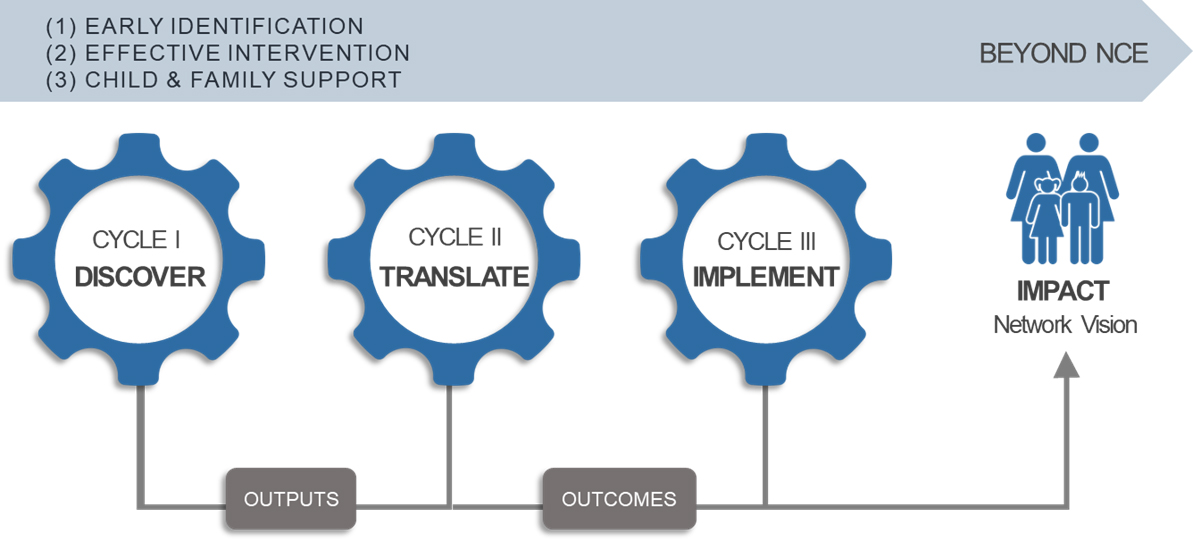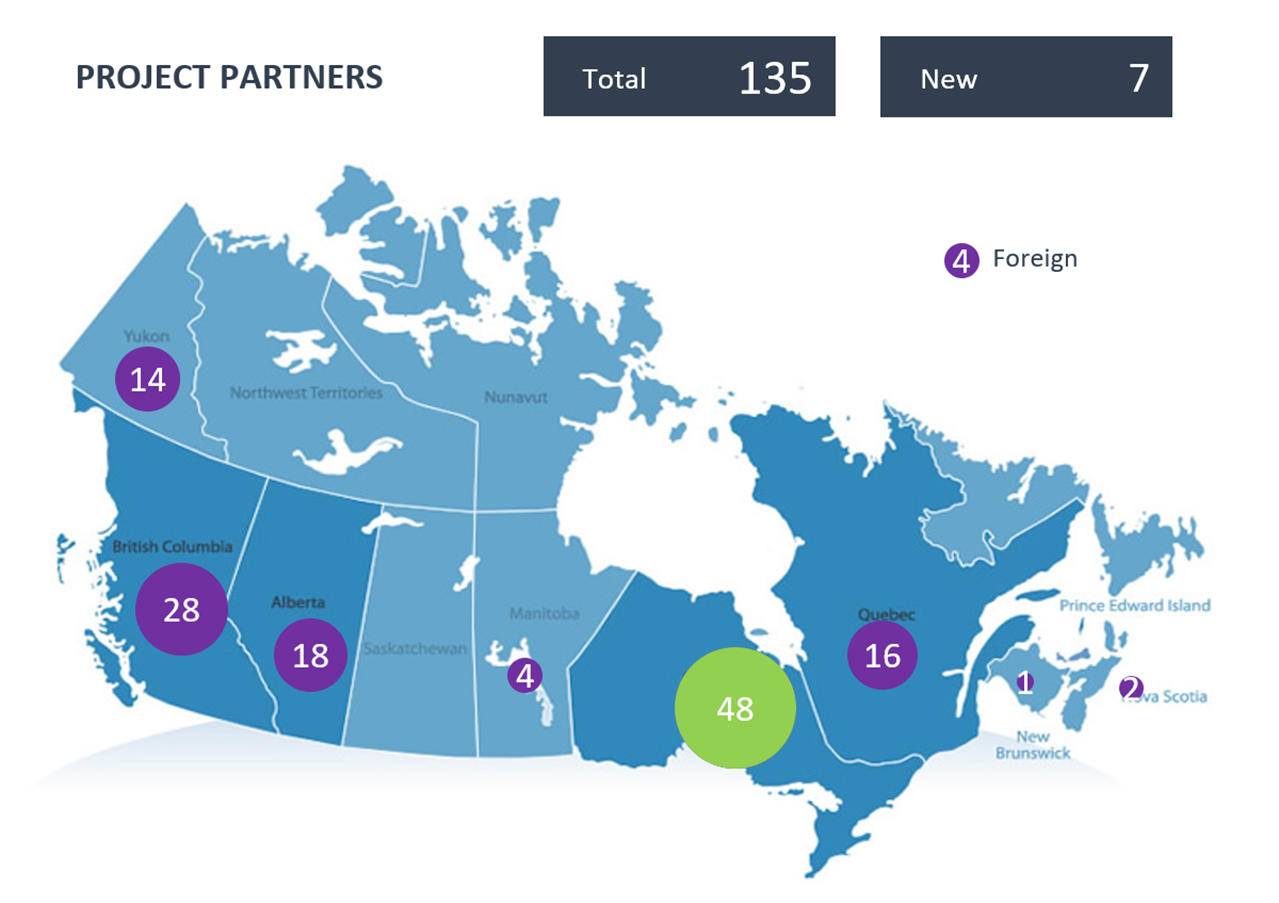KBHN’s research programs are focused on three significant challenges that are critical across virtually all neurodevelopmental disabilities (need for early identification, evidence-based interventions, and enhanced family support). Example achievements related to each of the three focus areas include:
- Expanded engagement with Indigenous partners to implement a community-based screening and intervention program designed to support the development of Indigenous infants and toddlers.
- E-Health solutions such as Dino Island that address executive function deficits and Better Nights Better Days that address sleep disruption entered into negotiations with private sector partners to commercialize these technologies.
- System navigation programs have improved navigational systems by making them coordinated and person /family-centred and building capacity across the continuum of care (primary, secondary and tertiary levels) and sectors (education, health, social services) in collaboration with NGOs and government.

Figure 1: Research to Impact
Without committed implementation partners across several jurisdictions and sectors, KBHN would fall short of moving knowledge to practical application and impact. KBHN has worked hard to secure continuing collaborations and recruit additional implementation partners for the implementation projects to be scaled in Cycle III. Project teams played a key role as part of the partnership strategy in securing continued and new partner funding to support implementation efforts. The following examples highlight this diversity:
- National, provincial, and multi-sector partners of the Physical Activity Program include Special Olympics Canada and Special Olympics BC. Providing accessible, affordable personalized coaching for children with neurodevelopmental disabilities, Special Olympics BC has the potential to reach over 69,000 British Columbians who access Special Olympics programs, many of whom are children. Additional partners come from the private sector (SportsGo Inc), government (BC Ministry of Health and BC Ministry of Child and Family Development), and publicly-funded organizations (Children’s Hospital of Eastern Ontario, Sunny Hill Health Centre and the University of Toronto Department of Kinesiology and Physical Education).
- The Integrated Navigational Support for Families of Children with Neurodevelopmental Disabilities project has over 38 partners across Alberta, British Columbia and the Yukon. In the Yukon, specific partnerships addressing indigenous children and youth include several First Nation Councils. Other partners include frontline health service organizations, local family support societies, associations, education, hospital sectors, national NGOs, and government departments.

Figure 5 Year 11 Products and Outputs
Showcased below are selected KTEE highlights which demonstrate the dissemination of innovation deliverables to strategic partners, community groups, clinicians and families:
Commercial Product – Dino Island: Dino Island is a suite of engaging computer games specifically designed to strengthen attention and executive functions in children with neurodevelopmental disabilities. The program is facilitated by an adult trained to support children as they work through game-related tasks. It was tested in school settings by Educational Assistants working with children with ASD or FASD. Dino Island has been included as an official partner within the Panacea Gaming Project, an international consortium focussed on bringing evidence-based health technology solutions and clinical service to children with neurodevelopmental disabilities.
Practice Guidelines – Physical Activity Program: Physical activity coaches and parents use evidence-based practice guidelines to enable children with neurodevelopmental disabilities to participate in community-based physical activity programs. These practice guidelines will be incorporated into all of the provincial programs offered by Special Olympics BC and are ready for cross-Canada implementation, including motor skills assessment forms and protocols and comprehensive child and parent assessment forms.
Training Manual & Course Package – Social ABCs: Parents are coached by Social ABCs trained interventionists (also called “parent coaches”) on how to interact with their children to encourage children to use language and develop social interaction skills. A manual and course package materials have been designed to disseminate this evidence-based intervention to parents and frontline workers. The intervention’s demonstrated clinical benefit has led to its adoption into the suite of programs offered by the Holland Bloorview Kids Rehabilitation Hospital. Plans are underway for broader dissemination to other service providers across Canada and internationally.


